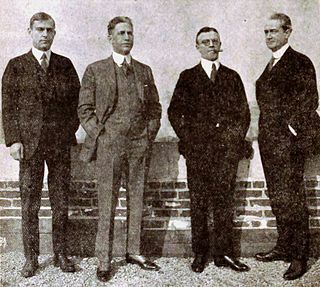A Quote by Alfred Lord Tennyson
And men, whose reason long was blind, From cells of madness unconfined, Oft lose whole years of darker mind.
Related Quotes
The Middle Ages were an era of mysticism, ruled by blind faith and blind obedience to the dogma that faith is superior to reason. The Renaissance was specifically the rebirth of reason, the liberation of man's mind, the triumph of rationality over mysticism - a faltering, incomplete, but impassioned triumph that led to the birth of science, of individualism, of freedom.
Both in Britain and America, huge publicity has been given to stem cells, particularly embryonic stem cells, and the potential they offer. Of course, the study of stem cells is one of the most exciting areas in biology, but I think it is unlikely that embryonic stem cells are likely to be useful in healthcare for a long time.
There are so many kinds of madness, so many ways in which the human brain may go wrong; and so often it happens that what we call madness is both reasonable and just. It is so. Yes. A little reason is good for us, a little more makes wise men of some of us--but when our reason over-grows us and we reach too far, something breaks and we go insane.
From time to time there appear on the face of the earth men of rare and consummate excellence, who dazzle us by their virtue, and whose outstanding qualities shed a stupendous light. Like those extraordinary stars of whose origins we are ignorant, and of whose fate, once they have vanished, we know even less, such men have neither forebears nor descendants: they are the whole of their race.
The constitution of madness as a mental illness, at the end of the eighteenth century, affords the evidence of a broken dialogue, posits the separation as already effected, and thrusts into oblivion all those stammered, imperfect words without fixed syntax in which the exchange between madness and reason was made. The language of psychiatry, which is a monologue of reason about madness, has been established only on the basis of such a silence.






































